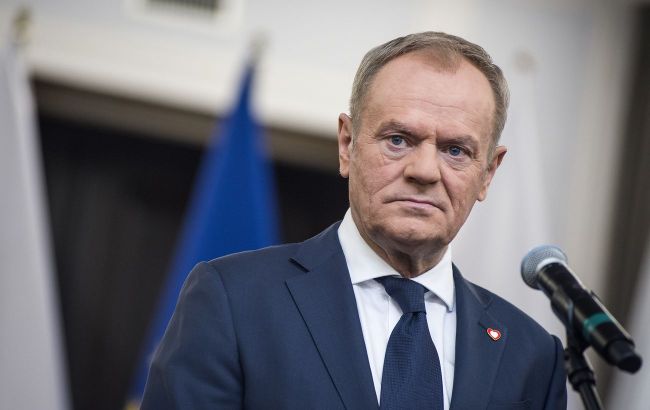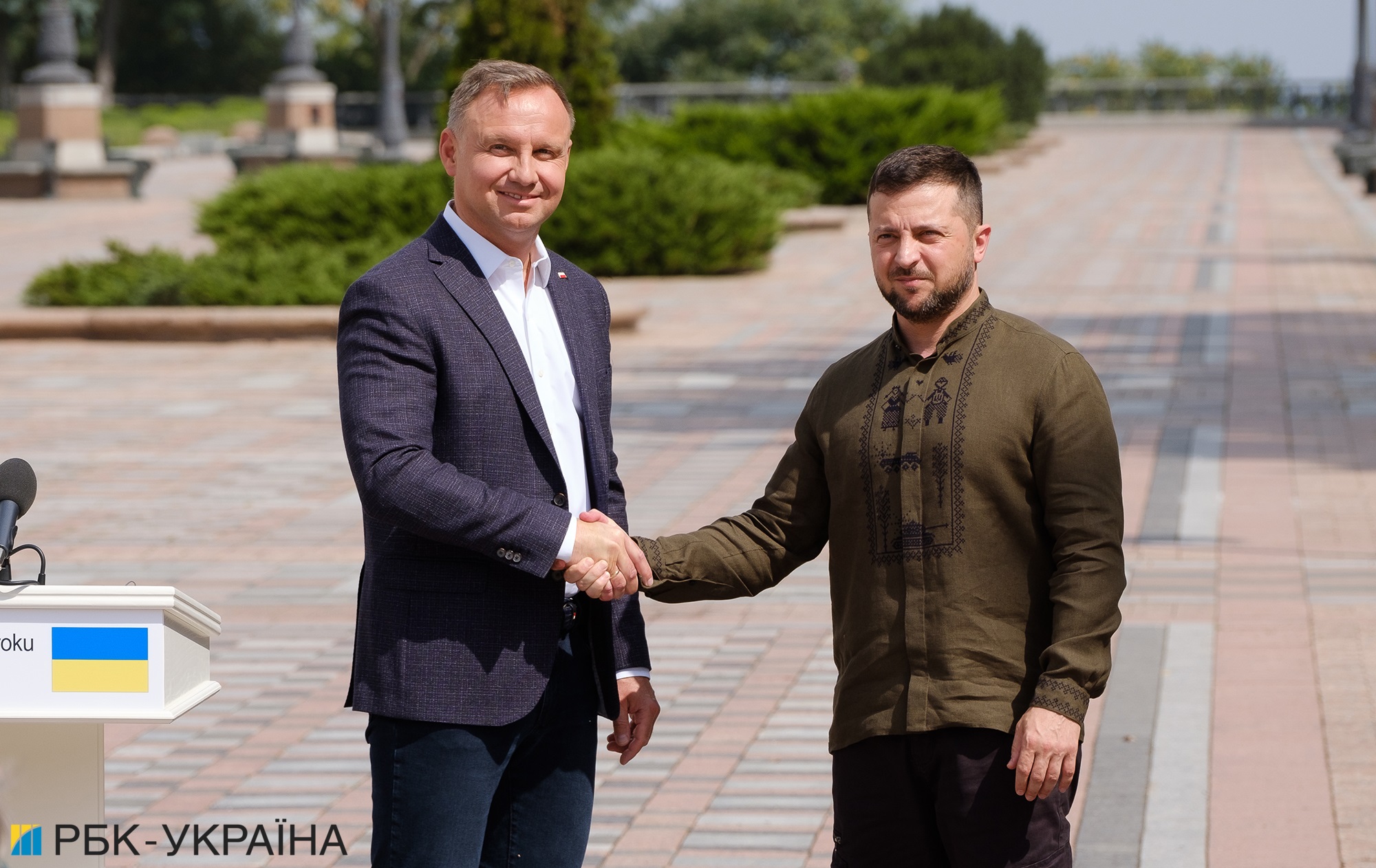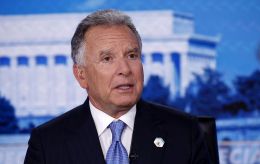Polish turnaround: Changes to expect for Ukraine from new Tusk government
 Donald Tusk, new Polish Prime Minister (Photo: Getty Images)
Donald Tusk, new Polish Prime Minister (Photo: Getty Images)
Today, on December 13, a new government of Poland, headed by Donald Tusk, starts its work. Is it worth expecting problems in the relations between Ukraine and Poland to soon disappear - in the material by RBC-Ukraine.
In the circles of the Polish party "Law and Justice," which has practically monopolistically controlled the country since 2015, before the October parliamentary elections, there was particular popularity in the theory that Kyiv is eagerly awaiting a change of power in Warsaw and the return of Donald Tusk to the prime minister's chair. Supposedly, Volodymyr Zelenskyy's team even entered into secret behind-the-scenes negotiations with Berlin, where "PiS" is treated, to put it mildly, coolly. This theme was mainly actively fueled during the crisis with the entry of Ukrainian grain into Europe.
However, Polish conservatives usually did not provide any significant arguments in favor of such a "conspiracy," and ways in which Zelenskyy, together with Olaf Scholz, could bring Polish liberals to power were not mentioned. However, Polish media noted that the election of Tusk as prime minister was warmly welcomed in Ukraine. However, congratulations from Zelenskyy and Prime Minister Denys Shmyhal did not go beyond the usual formulations in such cases.
European Union leaders demonstrated their sympathies even more openly in this regard. "Your experience and strong commitment to our European values will be valuable in building a stronger Europe for the benefit of the Poles," wrote the former President of the European Commission, Ursula von der Leyen.
The appeal to "European values" is not accidental. Brussels has criticized the Polish government for "undermining democratic values" for many years, and this issue only faded into the background with the beginning of Russia's full-scale aggression against Ukraine (although EU funding for Poland from EU funds was not unlocked until the end).
The European authorities reasonably believe that relations between Warsaw and the EU will improve. In this regard, the victory of the pro-European Polish opposition in the elections is in contrast to the trend of recent months - the victories of Eurosceptics of various stripes in elections in Slovakia and the Netherlands, the explosive growth of the popularity of the far-right "Alternative for Germany," and so on.
And suppose the conflict points between Warsaw and Brussels will disappear (which will be facilitated by Tusk's experience as the head of the European Council from 2014 to 2019). In that case, it is not worth expecting all problematic issues between Warsaw and Kyiv to be resolved instantly.
In his two-hour speech to the Sejm deputies, Tusk clearly outlined his policy's priorities towards Ukraine. In particular, he emphasized the need for "full mobilization of the West" to assist Ukraine. With connections with global political elites, the voice of such an influential figure as Tusk is especially important now when long-term assistance to Ukraine is essentially hanging on both sides of the Atlantic.
It is evident that in practice, the new Minister of Foreign Affairs in Tusk's government, Radosław Sikorski, will help implement this policy. He is an experienced diplomat whose career has seen some ambiguous statements; however, in recent years, he has acquired a reputation as a staunch Russophobe - on the eve of last year's Russian invasion of Ukraine, he called Russia a "serial rapist" and threatened that it would "get hit in the balls," causing hysteria among Russian propagandists.
However, Tusk immediately made it clear in his speech that his pro-Ukrainian policy would not harm Poland's national interests in any way: "We must be persistent when it comes to Polish interests, including Polish farmers." Moreover, several important positions, including the ministers of defense and agriculture, are held by his coalition partners from the Polish Peasant Party - they will fight for Polish farmers' interests to the end.
In addition, at least until the 2025 elections, Polish President Andrzej Duda will remain in office and potentially can veto decisions of the parliamentary coalition opposed to him (and Tusk and his allies lack the votes to override the veto).

Presidents Andrzej Duda and Volodymyr Zelenskyy (photo: Vitalii Nosach / RBC-Ukraine)
In the coming days, Ukrainian politics will face two tests from the new Polish government, both at the pan-European and bilateral levels.
The hottest issue is, of course, the lifting of the transport blockade on the Polish-Ukrainian border. The temporary government formed after the elections essentially removed itself from the problem, leaving it to carriers and local authorities. Tusk, even before becoming prime minister, stated that the problem should be resolved immediately and held meetings with experts on this issue.
Obviously, after the intervention of the central government, the blockade will be lifted, and the issue will move to a negotiating format, possibly with Polish carriers receiving some compensation from their government.
Already on the second day of the full operation of the new Polish government, its head will travel to Brussels for the summit of EU leaders, where two key issues for Ukraine will be decided: the allocation of 50 billion euros in aid for the next four years and the start of negotiations on Ukraine's accession to the European Union. However, the resolution of both issues hinges on the position of Budapest, not Warsaw, and Tusk has already acknowledged that his influence on Viktor Orban's opinion is minimal.
On Ukraine's part, in addition to not harboring excessive illusions about Tusk coming to power, it should not repeat its frequent foreign policy mistake: when dealing with a particular country, it locks itself exclusively on the government and essentially ignores the opposition.
"PiS" remains very popular, and judging by the results of the recent elections, it is the most popular party in Poland. From the opposition's position, Tusk will not have a peaceful life.
From the first minutes after the election of the new prime minister, it became clear that polarization in Polish society did not disappear after the change of government: "PiS" leader Jarosław Kaczyński, took the podium in the Sejm and accused Tusk, his bitter personal enemy, of being a "German agent."
Relations between Ukraine and the new Polish government will probably face many challenges next year, which, according to most Western observers and others, will be more difficult for Ukraine than they are now. If in geopolitics, European and Euro-Atlantic integration, security, and defense, Warsaw will be on the same side as Kyiv, practical economic issues, such as grain or transportation, will inevitably provoke conflicts.
Even more crucial is Poland's role in potential peace talks – currently, Kyiv categorically rejects such a possibility. Still, a year later, the situation may look different after the US elections. One of the Polish sympathizers of "PiS," with whom RBC-Ukraine spoke before the October elections, said bluntly: "You are hoping in vain for Tusk. We will stand by you when they start twisting your arms in negotiations. And they will listen to Berlin." How much truth, conspiracy, and dislike for political opponents are in this statement cannot be said at the moment.

